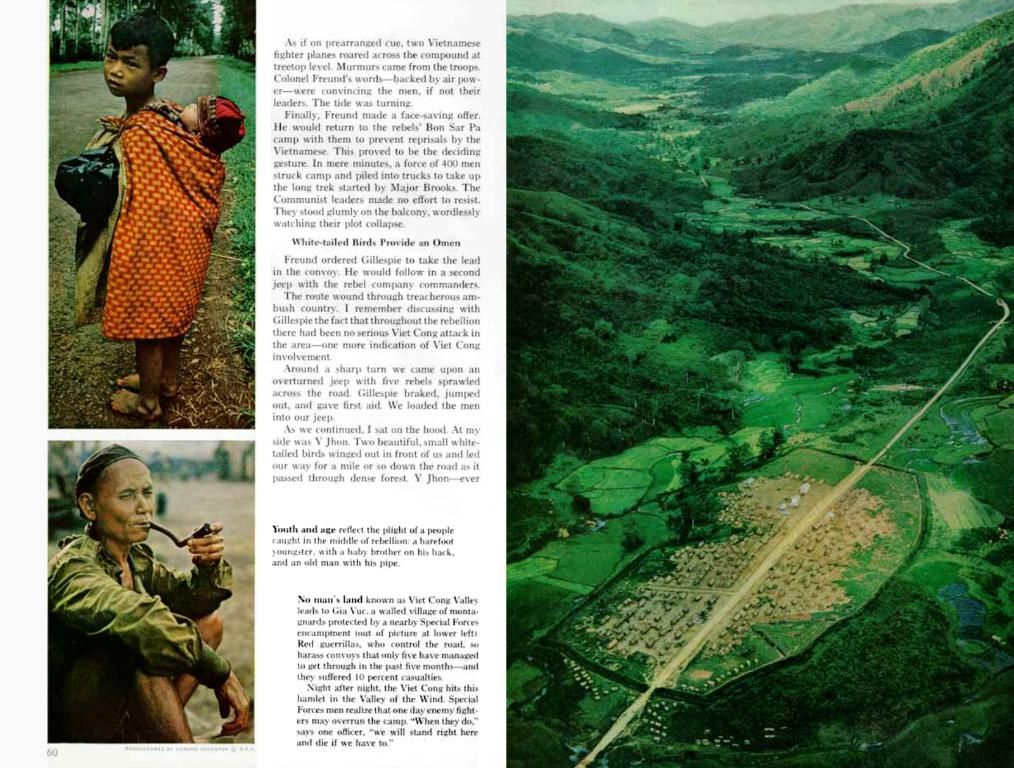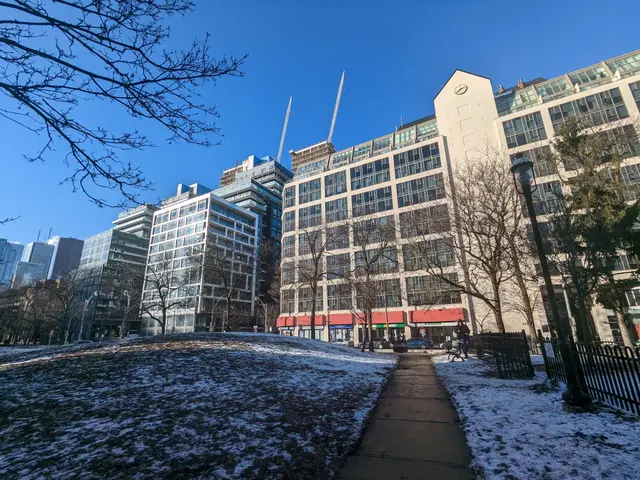Lula urges Macron to finalize the Mercosur-EU trade accord
Hey there, pal! Let's dive into the hustle and bustle of international trade negotiations, shall we? The Brazilian president, Lula da Silva, is putting the pressure on Emmanuel Macron, urging France to conclude a free trade agreement between Mercosur (Argentina, Brazil, Paraguay, and Uruguay) and the European Union (EU). This agreement would open up a plethora of opportunities, from exporting more cars, machinery, and spirits to gaining access to South American meat, sugar, rice, honey, and soy.
But whoa there, cowboy! Macron ain't just jumping on the bandwagon. There's a bit of a ruckus over the regulatory differences between the two regions. You see, the EU's got stringent agricultural standards, food safety regulations, and animal welfare rules, including strict controls on pesticide use, animal feed, and traceability requirements. On the other hand, Mercosur countries often operate with less stringent regulations, leading some European farmers and policymakers to worry that those cheaper, less regulated products could flood the European market, potentially undercutting local farmers who face higher compliance costs.
Then there's the environmental factor. The EU places a high importance on environmental protection, including anti-deforestation measures and commitments to combat climate change. Opposition from EU members like France has focused on allegations that Mercosur countries, particularly Brazil, have not done enough to address illegal logging in the Amazon, causing concerns about the environmental impact of increased beef and soy exports.
To add fuel to the fire, France and other EU members have been pushing for "mirror clauses" in the agreement, which would require imported products to meet the same environmental and safety standards as EU products. However, currently, such clauses are not fully in place, creating fears of regulatory dumping.
Last but not least, there are political and economic concerns on both sides. Some EU countries, led by France, argue that the agreement could harm European farmers by exposing them to cheaper, less regulated imports. While within Mercosur, there are internal tensions and differing approaches to trade with other partners, complicating the bloc’s negotiating position.
In summary, these regulatory gaps are the crux of the ongoing opposition within the EU, particularly from member states with strong agricultural lobbies and environmental concerns. The big question now is: can these differences be bridged to reach a mutually beneficial agreement? Stay tuned, partner, as this trade negotiations tale unfolds!
The ongoing disputes between the EU and Mercosur, led by France and Brazil, respectively, revolve around regulatory differences in policy-and-legislation, particularly in areas such as agriculture, food safety, animal welfare, and environmental protection. These concerns could potentially hinder the general-news of a free trade agreement, as EU countries worry about cheaper, less regulated products undercutting local farmers and the environmental impact of increased exports.







